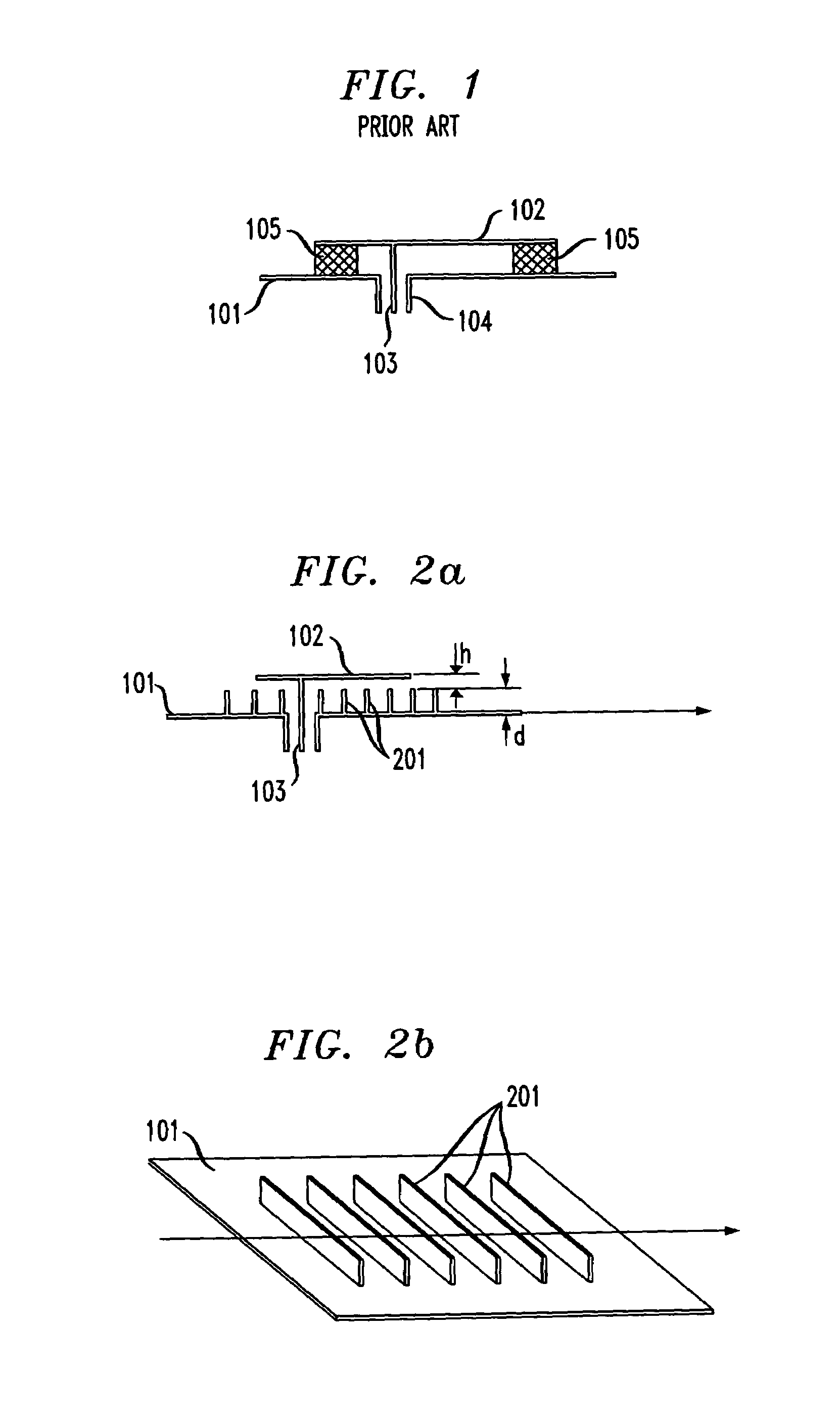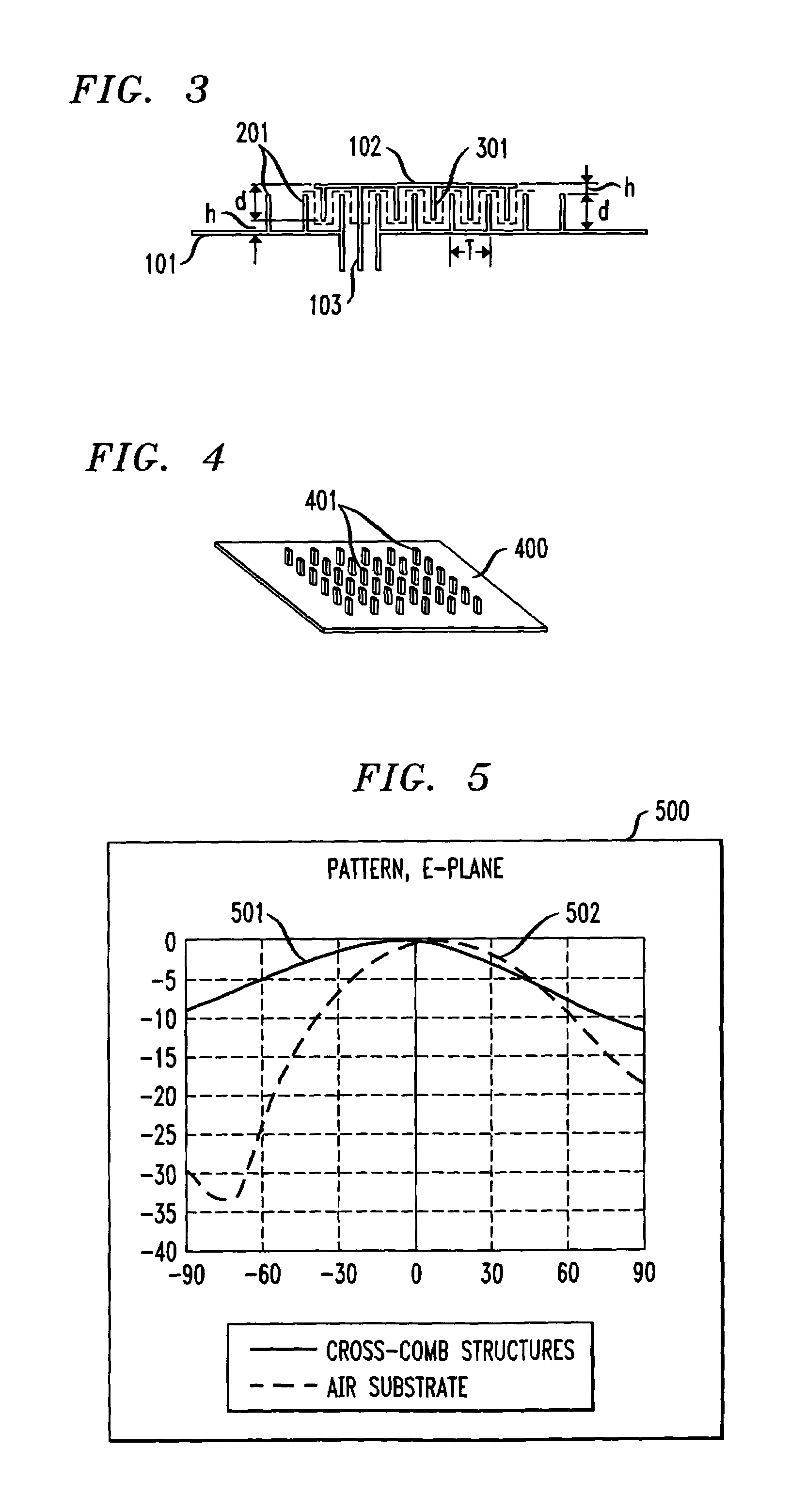Patch antenna with comb substrate
a patch antenna and substrate technology, applied in the field of patch antennas, can solve the problems of undesirable increase in antenna weight and increase in thickness, and achieve the effects of reducing the speed of a wave traveling across the structure, reducing the size and weight of patch antennas, and increasing the angular response pattern of patch antennas
- Summary
- Abstract
- Description
- Claims
- Application Information
AI Technical Summary
Benefits of technology
Problems solved by technology
Method used
Image
Examples
Embodiment Construction
[0018]As discussed above, the angular response pattern of an antenna can be broadened by decreasing the length of a patch. To obtain this broadening for a given operating frequency of a patch antenna the ∈eff of a substrate should be increased. This in turn results in narrowing the operating frequency band. To keep the operating frequency bandwidth at the desired value the thickness of the substrate should be increased to separate the patch from the ground plane by a greater distance. However, such an increase in thickness will have the detrimental effect of increasing the weight of the antenna. It would be desirable to maintain a constant ∈eff of a substrate and length of a patch in an antenna while, at the same time, separating the ground plane from the patch.
[0019]The present invention substantially achieves this objective. FIGS. 2A and 2B show one illustrative embodiment of a patch antenna in accordance with the principles of the present invention whereby the angular response of...
PUM
 Login to View More
Login to View More Abstract
Description
Claims
Application Information
 Login to View More
Login to View More - R&D
- Intellectual Property
- Life Sciences
- Materials
- Tech Scout
- Unparalleled Data Quality
- Higher Quality Content
- 60% Fewer Hallucinations
Browse by: Latest US Patents, China's latest patents, Technical Efficacy Thesaurus, Application Domain, Technology Topic, Popular Technical Reports.
© 2025 PatSnap. All rights reserved.Legal|Privacy policy|Modern Slavery Act Transparency Statement|Sitemap|About US| Contact US: help@patsnap.com



